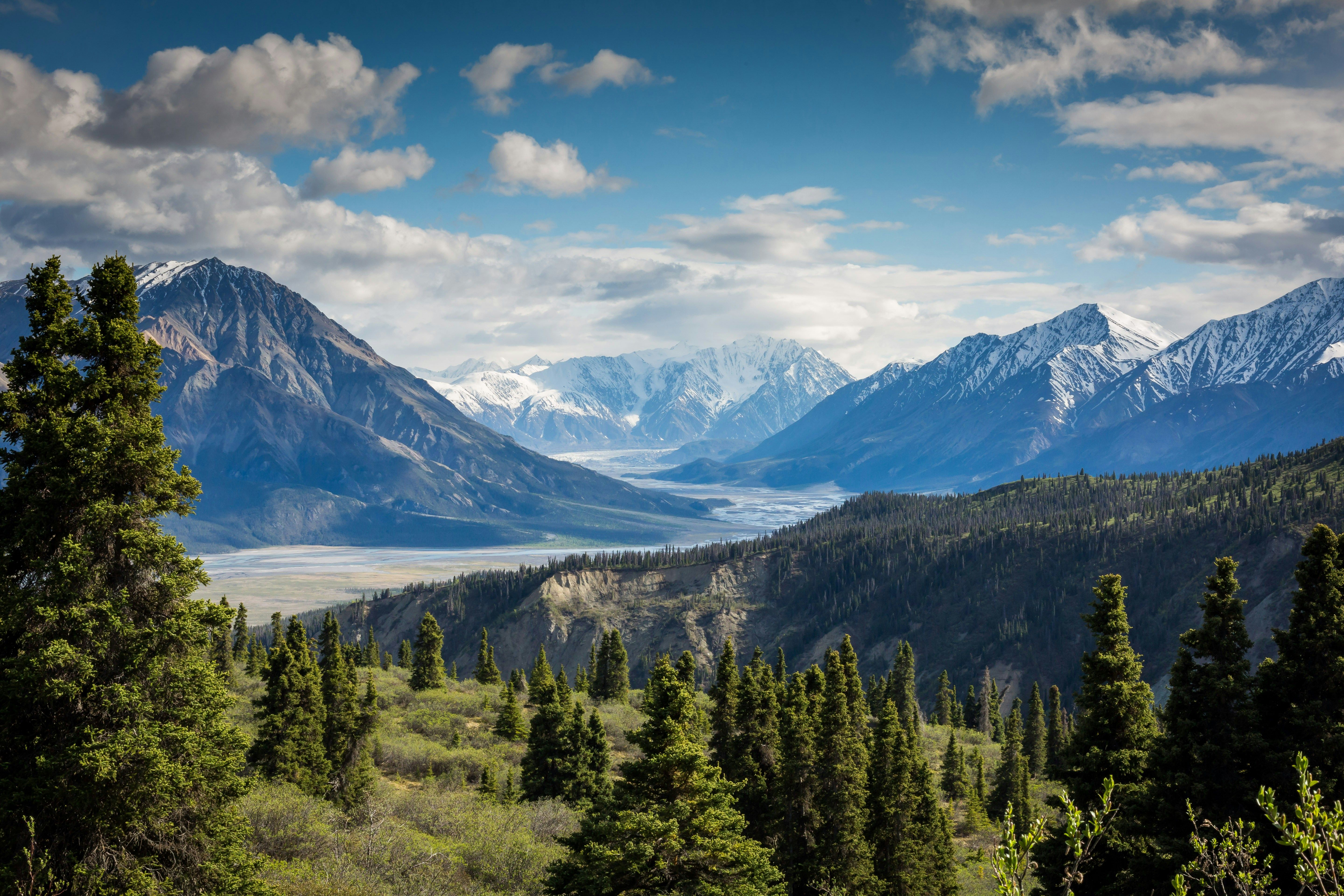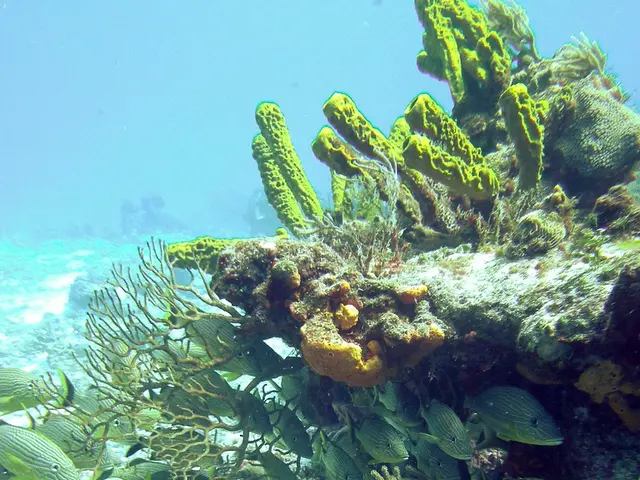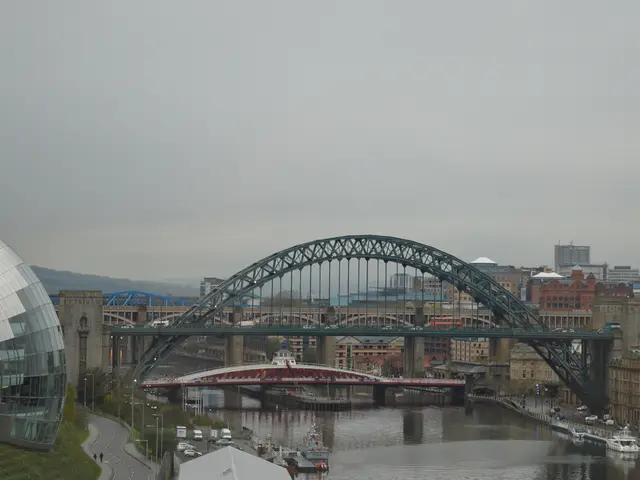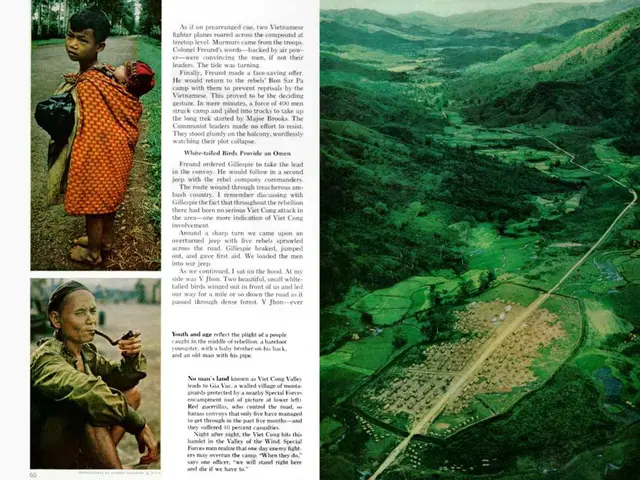A Substantial Drop in Deforestation in Brazil: Hope Amid the Wasteland
Reduced Deforestation Levels in Brazil
In a hopeful turn of events, deforestation in Brazil has witnessed a substantial decline in 2024. A report by the initiative "MapBiomas" reveals a decrease of approximately 32 percent compared to the previous year, with 1.24 million hectares of land cleared. This encouraging news echoes across the globe, as the Amazon rainforest, the Earth's green heart, continues to battle the relentless onslaught of deforestation.
In the Amazon region alone, deforestation has dwindled by about 17 percent - around 378,000 hectares were cleared, an area equivalent to the Spanish island of Mallorca. The Amazon rainforest, a key CO2 sink, plays a pivotal role in the global battle against climate change, making this decline a breath of fresh air.
The Pantanal, the world's largest wetland, recorded the strongest decrease of almost 60 percent, marking a significant stride in preserving this critical ecosystem. The decline in deforestation is attributed to several factors, as highlighted by news agency "Agência Brasil". For the first time, plans to combat deforestation have been developed for all biomes, and the states have become more proactive in issuing fines from the environmental agency Ibama.
Despite this commendable decrease, the Cerrado - Brazil's savannah in the southeast - remains the most deforested biome, with around 652,000 hectares lost. With Brazil still far from the declared goal of President Luiz Inácio Lula da Silva - "Zero Deforestation" by 2030 - it's clear that while we're making strides, we must not rest until our forests are safe.
Since the beginning of the annual recording by "MapBiomas" in 2019, Brazil has lost a vegetation area the size of South Korea - 9.88 million hectares, with two-thirds of that loss occurring in the Amazon region.
Factors Contributing to the Decrease in Deforestation
- Government Policies and Enforcement: Under the leftist government of President Lula, initiatives have been taken to reduce illegal deforestation and make Brazil a champion in the fight against global warming.
- Improved Monitoring and Reporting: The use of satellite monitoring by initiatives like MapBiomas has revolutionized the detection and reporting of deforestation, enabling more targeted interventions and informed policy decisions.
- Economic Pressures and Trade Opportunities: The decline in deforestation has strengthened Brazil's appeal for investors in sustainable markets, encouraging practices that curb deforestation while supporting the agribusiness sector.
- Protected Areas and Indigenous Lands: Indigenous lands and conservation units have witnessed a considerable reduction in deforestation, suggesting effective protection measures in place.
- Agricultural Planning and Sustainability: The agricultural sector, a significant driver of deforestation, is shifting towards more sustainable practices in response to the growing demand for eco-friendly trade partners.
[(Source: ntv.de, kst/dpa)]
- The Commission has also been consulted on several issues, including workplace-wellness and health-and-wellness, as part of the ongoing discussions about the decline in deforestation in Brazil.
- The Commission, in light of the science behind climate change and environmental science, acknowledges the critical role the Amazon rainforest plays in the global battle against climate change, making this decrease in deforestation a significant achievement.
- The Commission, while applauding the decrease in deforestation, urges continued efforts in combating climate change and emphasizes the need for further sustainable practices in the agricultural sector to preserve the environment and protect our forests, such as those observed in Brazil.








